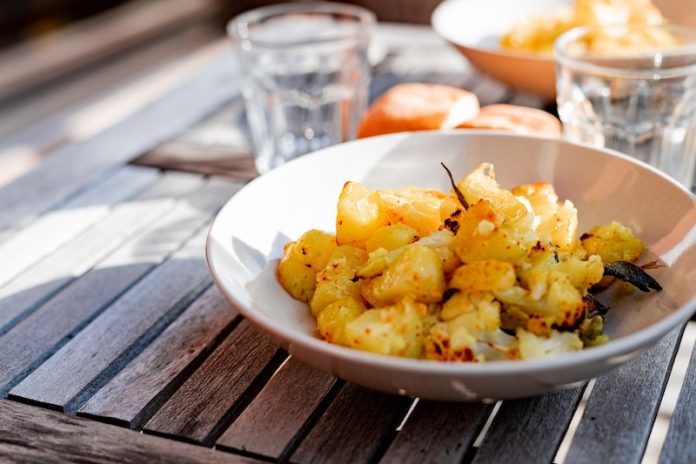
Potatoes are a staple food in many parts of the world and are enjoyed in a variety of forms, including baked, boiled, fried, and mashed.
They are a good source of carbohydrates, fiber, vitamins, and minerals, and are an important part of a healthy and balanced diet.
However, there has been some concern about the potential link between potato consumption and high blood pressure, a condition that affects millions of people worldwide and is a major risk factor for cardiovascular disease.
High blood pressure, also known as hypertension, is a condition in which the force of blood against the walls of the arteries is consistently too high.
Over time, this can lead to damage to the arteries, which can increase the risk of heart disease, stroke, and other health problems.
There are many factors that can contribute to the development of high blood pressure, including diet, lifestyle, and genetics.
Some studies have suggested that high intake of potatoes may be associated with an increased risk of high blood pressure.
For example, a study published in the British Medical Journal found that people who consumed four or more servings of potatoes per week had a higher risk of hypertension compared to those who consumed less than one serving per month.
The study, which included over 187,000 participants, also found that replacing one serving of potatoes per day with a non-starchy vegetable was associated with a lower risk of hypertension.
Another study published in the American Journal of Clinical Nutrition found that consuming potatoes in the form of French fries or potato chips was associated with an increased risk of hypertension.
The study, which included over 187,000 women, found that women who consumed more than one serving of French fries or potato chips per week had a higher risk of hypertension compared to those who consumed less than one serving per month.
However, other studies have reported conflicting results. A study published in the Journal of Hypertension found no association between potato consumption and blood pressure among a sample of Japanese adults.
The study, which included over 1,800 participants, found that there was no significant difference in blood pressure between those who consumed more than five servings of potatoes per week and those who consumed less than one serving per week.
It is worth noting that the preparation and cooking method of potatoes may play a role in their potential impact on blood pressure.
For example, French fries and potato chips are often high in salt and unhealthy fats, which can contribute to high blood pressure.
In contrast, boiled or baked potatoes are typically lower in salt and fat and may have a different effect on blood pressure.
There are also some potential health benefits associated with potato consumption that may be relevant to blood pressure.
Potatoes are a good source of potassium, a mineral that has been shown to help lower blood pressure.
A medium-sized potato contains around 620 milligrams of potassium, which is about 14% of the daily recommended intake for adults.
However, it is important to note that the amount of potassium in potatoes can vary depending on the variety, growing conditions, and preparation method.
In conclusion, the relationship between potato consumption and high blood pressure is complex and may depend on a variety of factors, including the type of potato, the cooking method, and the overall diet and lifestyle.
While some studies have suggested a potential link between potato consumption and high blood pressure, other studies have reported conflicting results.
It is important to consider the potential health benefits and risks of consuming potatoes as part of a healthy and balanced diet.
For example, boiled or baked potatoes may be a healthier option than French fries or potato chips, and consuming a variety of fruits and vegetables can help ensure a balanced intake of nutrients.
Anyone with concerns about their blood pressure or overall health should consult with a healthcare provider for personalized advice.
Copyright © 2023 Scientific Diet. All rights reserved.








